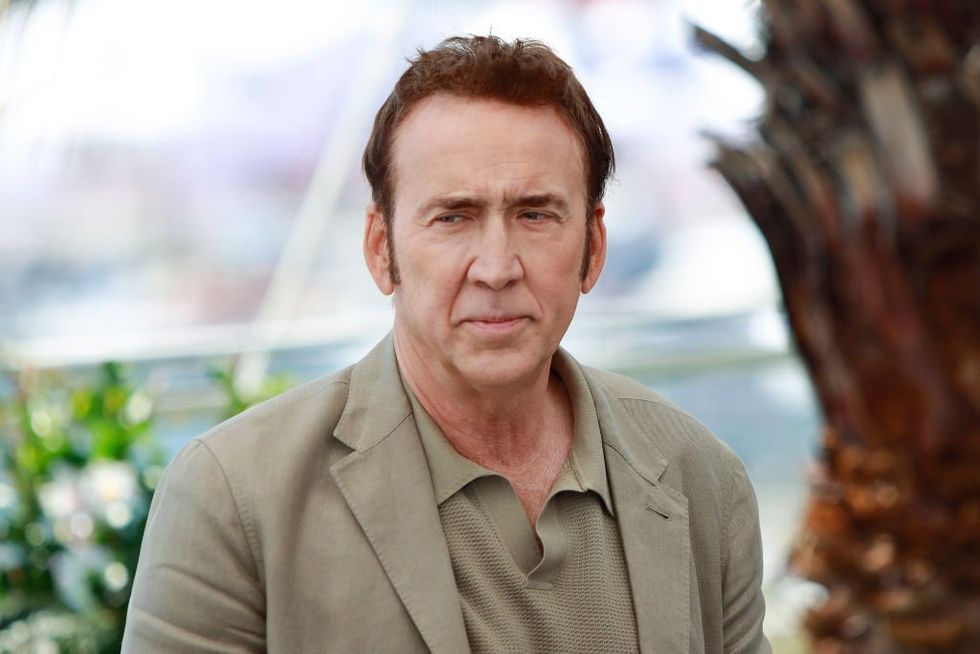
www.theblaze.com
Potential Trump Cabinet pick Vivek Ramaswamy wants America First movement to lean libertarian
Ohio businessman Vivek Ramaswamy is convinced that President Donald Trump is going to win in November. Ramaswamy,
a potential Cabinet pick, is, however, uncertain about what making America great again means to some of those who may ultimately claim victory with Trump come Election Day.
In a speech Tuesday evening at the National Conservatism Conference in Washington, D.C., Ramaswamy identified two dominant branches within the America First movement and indicated which he thinks is more likely to bear fruit.
In his remarks, Ramaswamy noted how Trump effectively landed the killing blow against the neoliberal consensus, offering instead a "nationalist vision for America's future." While the America First movement could apparently agree that nationalism is the way to go, Ramaswamy expressed concern about what kind of nationalism would dominate in the years to come: national protectionism, which some might alternatively recognize as economic nationalism, or national libertarianism, which he favors.
National protectionism, according to Ramaswamy, is animated by a desire to ensure that "American workers earn higher wages and American manufacturers can sell their goods for a higher price, by protecting them from the effects of foreign competition." National protectionists apparently also "believe in reforming the regulatory state to redirect its focus to helping American workers and manufacturers."
Judging from Ramaswamy's comments, it appears he figures Ohio Sen. J.D. Vance (R) — a favorite to become Trump's running mate — for a champion of the protectionist branch of the America First movement.
Vance has, after all, signaled a willingness to use statist interventions to improve the lot of Americans, as in the case of raising the minimum wage. The Ohio senator
recently drew the ire of libertarians by advocating in a New York Times interview for "applying as much upward pressure on wages and as much downward pressure on the services that the people use as possible."
The national libertarianism advocates alternatively "care foremost about making sure that our trade and immigration policies do not compromise our national security and national identity, in ways that neoliberal policies inadvertently did."
'We don't want to replace a left-wing nanny state with a right-wing nanny state.'
National libertarians "don't believe in reimagining the regulatory state, but instead believe in shutting it down — not because National Libertarians are agnostic to the plight of American workers and manufacturers but because it is their profound conviction that the regulatory state is indeed the enemy itself," said Ramaswamy.
Despite railing against the old consensus, Ramaswamy advocated in his speech for the kind of deregulation that previous National Conservatism speakers indicated was
symptomatic of the outgoing liberal regime — the kind of deregulation that elements of the protectionist group might otherwise be resistant to.
After detailing the divergence between these two branches of America First nationalism when it comes to the regulatory state, immigration, and trade, Ramaswamy underscored that he is partial to the national libertarian view because he believes it "is the way to help American workers and manufacturers."
"The National Libertarians — and if it's not obvious already, that's the camp I'm in — believe that we won't beat the left by adopting its methods," Ramaswamy said in his conclusion. "We don't want to replace a left-wing nanny state with a right-wing nanny state. Instead our goal is to dismantle the nanny state and its regulatory apparatus altogether, permanently, once and for all; to metaphorically burn its edifice and then to burn the ashes. And if we succeed in doing so, that will mark the beginning of an American revival that starts with the radical principle of our Founding: The people we elect to run the government will once again be the ones who actually run the government."
Like Blaze News? Bypass the censors, sign up for our newsletters, and get stories like this direct to your inbox. Sign up here!

















